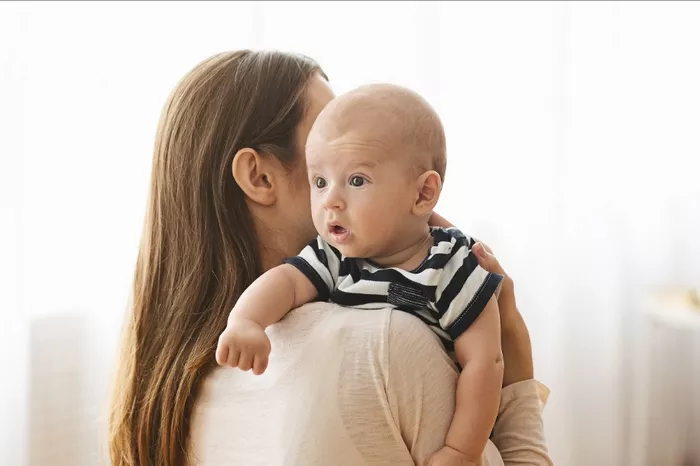Hiccups in newborns are a common phenomenon that often causes concern among new parents. The sight of a tiny baby hiccupping can be both adorable and worrisome, leading to questions about whether these involuntary contractions are a sign of an underlying problem. This article aims to provide a comprehensive understanding of newborn hiccups, including their causes, potential dangers, and effective management strategies.
What Causes Hiccups in Newborns?
Hiccups, or singultus, occur due to involuntary contractions of the diaphragm, a muscle located between the chest and abdomen that plays a crucial role in breathing. These contractions are followed by a rapid closure of the vocal cords, producing the characteristic “hic” sound. In newborns, several factors can trigger hiccups:
Immature Diaphragm
Newborns have an immature diaphragm that is still developing. The immaturity of this muscle makes it more prone to spasms, leading to hiccups.
Feeding
Hiccups are often triggered during or after feeding. This can happen due to the following reasons:
Swallowing Air: Newborns often swallow air while feeding, especially if they are bottle-fed or if they feed too quickly. The swallowed air can cause the stomach to expand, leading to diaphragm irritation and subsequent hiccups.
Overfeeding: Feeding a baby too much at once can cause the stomach to distend, pressing against the diaphragm and triggering hiccups.
Reflux: Gastroesophageal reflux (GER), where stomach contents flow back into the esophagus, can irritate the diaphragm and cause hiccups.
Temperature Changes
Sudden changes in temperature, such as moving from a warm to a cooler environment or drinking a cold liquid, can stimulate the diaphragm and result in hiccups.
Excitement or Stress
Newborns are sensitive to their environment, and excitement or stress can lead to diaphragmatic spasms. This is more common in older infants and young children.
Are Hiccups Dangerous for Newborns?
Generally, hiccups in newborns are not dangerous and are considered a normal part of their development. Most cases of hiccups are harmless and resolve on their own without any medical intervention. However, it is essential to understand when hiccups might indicate a more serious issue.
Normal vs. Concerning Hiccups
Normal Hiccups: These are short-lived, occurring occasionally and resolving within a few minutes. They do not interfere with the baby’s feeding, sleep, or breathing.
Concerning Hiccups: If hiccups are frequent, prolonged, or accompanied by other symptoms such as vomiting, irritability, poor feeding, or breathing difficulties, it might indicate an underlying medical condition that requires attention.
Potential Underlying Conditions
While rare, persistent or severe hiccups in newborns can be a symptom of the following conditions:
Gastroesophageal Reflux Disease (GERD): Chronic reflux can lead to frequent hiccups, irritability, and feeding difficulties. GERD occurs when the lower esophageal sphincter, which prevents stomach contents from flowing back into the esophagus, is underdeveloped or weak.
Neurological Issues: In very rare cases, frequent hiccups might be associated with neurological problems that affect the diaphragm’s control.
Infections or Irritation: Respiratory infections or irritation of the diaphragm can also cause persistent hiccups.
Managing Newborn Hiccups
Parents can take several steps to manage and reduce the occurrence of hiccups in their newborns. These strategies focus on feeding practices, positional changes, and environmental factors.
See Also: What Do You Do When Your Newborn Has Hiccups?
Feeding Practices
Burping: Burping the baby during and after feeding can help release trapped air and prevent the stomach from distending. Parents should gently burp the baby every 2-3 ounces if bottle-fed or when switching breasts if breastfed.
Proper Feeding Position: Keeping the baby in an upright position during feeding can reduce the amount of air swallowed. An inclined feeding position also helps.
Pacing the Feed: Feeding smaller amounts more frequently can prevent overfeeding and reduce the likelihood of hiccups.
Positional Changes
Upright Positioning: Keeping the baby upright for 20-30 minutes after feeding can help prevent reflux and hiccups. Parents can hold the baby against their chest or use a baby carrier.
Tummy Time: Supervised tummy time while the baby is awake can strengthen the diaphragm and improve digestion.
Environmental Factors
Temperature Control: Keeping the baby’s environment at a comfortable and consistent temperature can help prevent hiccups triggered by sudden temperature changes.
Calm Environment: Minimizing stress and excitement can reduce the likelihood of hiccups. Creating a calm feeding and sleeping environment is beneficial.
When to Seek Medical Advice
While hiccups are usually benign, certain signs should prompt parents to seek medical advice:
Persistent Hiccups: If hiccups last for more than a few hours or occur frequently, it is advisable to consult a pediatrician.
Associated Symptoms: Symptoms such as vomiting, irritability, poor weight gain, feeding difficulties, or breathing problems in conjunction with hiccups should be evaluated by a healthcare professional.
Growth and Development Concerns: If there are concerns about the baby’s growth, development, or overall health, it is essential to discuss them with a pediatrician.
Conclusion
Hiccups in newborns are a common and generally harmless occurrence. They result from the immaturity of the diaphragm and are often triggered by feeding, temperature changes, or excitement. While most cases of hiccups are not a cause for concern and resolve on their own, persistent or severe hiccups accompanied by other symptoms may indicate an underlying condition that requires medical attention.
Parents can manage and reduce the occurrence of hiccups through proper feeding practices, positional changes, and maintaining a calm and consistent environment. By understanding the nature of newborn hiccups and knowing when to seek medical advice, parents can ensure their baby’s well-being and address any potential issues promptly.
In summary, hiccups are a normal part of a newborn’s development. While they can be unsettling, they are rarely dangerous. With appropriate care and attention, parents can effectively manage their baby’s hiccups and focus on their child’s healthy growth and development.


